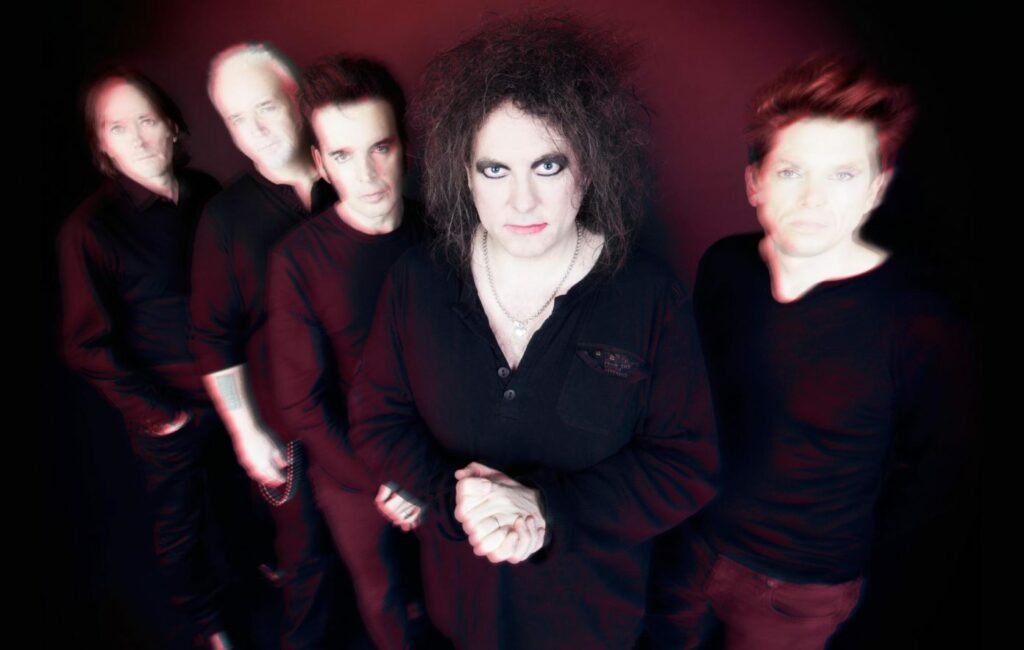What can artists learn from Robert Smith’s Ticketmaster crusade?
The Cure frontman has shown that artists have agency when it comes to protecting fans from extortionate pricing
By Joe Goggins

Iconic frontman, enigmatic lyricist and now, consumer champion; Robert Smith has had a busy few weeks. The normally media-shy Cure singer has taken the fight to Ticketmaster and to secondary marketing scalpers since the band announced their first US tour in six years last month, railing against rip-off rates and securing remuneration for fleeced fans in the process.
A quick recap for those not acquainted with the situation. When The Cure put the 30-date North American leg of their The Lost World tour on sale on March 15, they’d hoped to keep tickets affordable, offering seats to fan club members for as little as $20, opting out of Ticketmaster’s dynamic pricing model that allows for Uber-style price gouging, and making tickets non-transferable so as to guard against scalpers.
Imagine Smith’s concern, then, when he discovered that fans had been hit by eye-watering booking fees by Ticketmaster, which were sufficiently high that they exceeded the face value of the cheapest tickets. Already vexed by the fact that laws in three US states (New York, Illinois and Colorado) effectively protect touts by allowing for a secondary market with no price cap, Smith, a previously sparing user of social media, has regularly updated his followers on his efforts to rectify the situation in recent weeks. If it previously seemed incongruous that the softly spoken and perennially reluctant interviewee tweets entirely in upper case (he apparently conducts all email correspondence similarly), then suddenly, it fit: he was “SICKENED” at the fees “DEBACLE”.
His doggedness has come up trumps. Refunds of $10 were secured against the booking fees for the cheapest seats, with Ticketmaster’s email to buyers informing them of the move written in the tone of a foiled Scooby Doo villain: “this is all thanks to Robert Smith.” Meanwhile, he confirmed last Friday (March 31) that around 7000 tickets listed for sale on secondary site had been voided. It’s proof positive of the agency that artists have in these scenarios; in going above and beyond the efforts of most artists of his stature, Smith has helped to shield at least some of his fans from extortionate costs.
Which begs the question: why can’t his peers? On March 16, Smith noted on Twitter that any artist has the choice to opt out of Ticketmaster’s ‘platinum’ pricing tier, which spikes the face value of “the most in-demand tickets”, often meaning that the average fan is priced out of the opportunity to land the best seats in the house from the outset. “As Robert says, artists could decide not to sell their tickets at those prices,” says Steve Lee, president of the Fair Ticketing Alliance. “They take advantage of the most loyal fans, using non transparent pricing tactics and forcing them to buy merchandise and fan club subscriptions to get a chance to get tickets and then whilst people are in the queues they gauge the demand and up the price accordingly.”
It is this kind of cynical approach that Neil Young, a rare kindred spirit to Smith in the fight against rip-off ticketing, bemoaned in a post on his website last month (March 19). “It’s over,” he wrote. “The old days are gone. I get letters blaming me for $3,000 tickets for a benefit I am doing. That money does not go to me or the benefit. Artists have to worry about ripped off fans blaming them for Ticketmaster add-ons and scalpers. Concert tours are no longer fun. Concert tours are not what they were.”
It throws into stark relief the detached attitude of many top-tier artists, who often either avoid the issue entirely or shrug the current state of play off as an inevitability of modern touring. Bruce Springsteen’s adoption of dynamic pricing for his latest world tour so upset his fanbase that Backstreets, a revered fanzine of 43 years vintage, closed down in protest, with publisher Christopher Phillips saying, “we simply realised that we would not be able to cover this tour with the drive and sense of purpose with which we’ve operated continuously since 1980. That determination came with a quickening sense that we’d reach the end of an era.”
Back in January, at a US Senate hearing into another Ticketmaster debacle, over Taylor Swift’s Eras tour, Louisiana senator John Kennedy suggested that artists could do more to call for price capping themselves. Smith’s actions in recent weeks have proven that a better experience for fans is possible when artists become directly involved; according to Lee, meanwhile, a more open and honest system at all levels is key.
“The primary market must be made fully transparent,” he says. “It isn’t just the fees, which we believe are fine as every business needs to make profit, it is the lack of transparency, broken presale market and greed aspect which lets their pricing go way out of control.” Now, it’s time for artists and the ticket industry alike to face the music.
